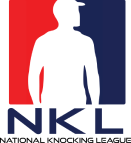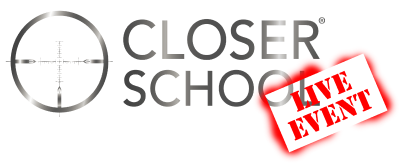That sinking feeling when you realize the numbers just aren’t there, despite all the effort? You know your team is grinding, but “hustle” alone isn’t closing deals. That’s a classic sign of a skills gap.
The fix isn’t another motivational speech; it’s a targeted injection of high-impact sales skills training.
For sales leaders in the D2D space, this guide cuts through the noise. We’ll show you how to diagnose your team’s weaknesses and install a system that produces consistent, predictable revenue.
You’re about to learn:
- Why skipping proper training is costing you more than you think.
- The specific skills that turn average reps into closing machines.
- The secret to making skills development a core part of your team’s culture.
- How to measure the impact of your training so you can justify every dollar spent.
The Power of Sales Skills in Boosting Team Performance
Why Sales Skills Matter More Than Ever
In modern sales, especially D2D, the game has changed. Your buyer is smarter, more informed, and more skeptical than ever. You can’t just rely on a smooth pitch or product knowledge anymore. You need genuine, high-level sales skills to stand out.
Think about it: every homeowner you talk to has likely been pitched before. They don’t need a presentation; they need a trusted advisor. This shift in the sales landscape means old-school tactics won’t cut it. The soft skills—the way you interact, listen, and manage a conversation—are now the hardest skills that impact your performance. The higher level of sales performance you achieve is directly tied to developing and maintaining elevated selling competencies.
Organizations with a powerful sales training program in place are more successful in meeting their quota. Nearly 80% of companies that have an effective training program are able to meet 100% of their sales targets.
The Cost of Underdeveloped Sales Teams
What happens when your team lacks those critical skills? It’s not just a missed sale; it’s a hemorrhage of revenue and morale. The expense of a sales team without proper sales skills training is staggering and usually unseen.
Nearly 70% of salespeople report they haven’t received any formal sales training, describing themselves instead as “self-taught social sellers”. And so, is it any surprise only 28% of sales professionals are expected to hit their quotas which obviously includes those in door to doorr? When sales teams don’t have the skills, you see big problems: low close rates, long sales cycles, high turnover, and burnout. Untrained sales managers can lack a predictable management process, which can affect their credibility and confuse sales reps.
Real World Scenario: Think skipping training saves you money? Think again. The cost of untrained employees far outweighs the investment in a good training program. Consider a store with $2 million in annual revenue: a modest 5% increase in the average sale and a 3% bump in transactions can boost your annual revenue by over **$160,000**. That $160,000 is the revenue you lose out on by not investing in training.
Understanding the Impact of Sales Skills Training
What is Sales Skills Training?
Sales skills training is the formal process of developing the competencies your reps need to consistently succeed. It moves beyond product features and teaches the how of selling: how to influence, how to negotiate, and how to get a prospect to commit. It is a structured program designed to boost your sales team’s effectiveness.
Training programs aren’t all the same. There are different types available, including instructor-led classrooms, virtual classrooms, and computer-based online methods. A continuous program that extends training and coaching beyond onboarding is the goal, with an emphasis on knowledge retention.
Key Sales Skills That Can Make a Difference
Certain core competencies directly influence a rep’s success on the doors. Building these skills through focused sales skills training will give your team an immediate edge.
- Active Listening: This involves listening to understand their underlying needs and concerns.
- Communication: Clearly articulating value and connecting with the prospect.
- Negotiation: The ability to sell on value instead of relying on discounts.
- Convincing Skill: The ability to successfully persuade the customer.
- Complaint Handling: The ability to deal with customer issues effectively.
Statistical Data: Studies suggest that sales competencies like product knowledge, active listening ability, and relational ability are the key competencies influencing a salesperson’s performance. Organizations with ongoing training programs also achieve 29% higher win rates than those without them.
How Sales Skills Training Drives Results
Training works because it creates consistency and confidence. It gives your reps a proven roadmap instead of forcing them to reinvent the wheel for every door.
Things To Consider
The best training isn’t a one-and-done event; it’s a culture. You have to consider a few factors for it to stick:
- Employee Participation and Consistency: You need to focus on spaced reinforcement of knowledge to overcome the “forgetting curve,” since people forget 75% of new information within one week after the training.
- Sales Coaching: Pairing training with effective coaching programs can lead to an 8.2% higher quota attainment for sales teams.
Real World Scenario: A global architectural firm, WATG, had a highly motivated team but needed to strengthen their commercial skills due to increasing market competition. After implementing a training program focused on understanding what was “mission critical” to their clients first, the team secured a great new client within weeks. The client noted that the team demonstrated a better understanding of their business and asked intelligent questions—a direct result of their new training.
Why Every Sales Team Needs Continuous Sales Skills Training
Building Confidence and Competence in Sales Reps
Your reps don’t want to feel unprepared when a tough customer shows up. Great training builds competence, and competence is the foundation of confidence. When a rep knows exactly how to handle a complex objection or how to articulate value, they approach the door with certainty.
Bonus Point: To improve sales rep confidence, incorporate role-playing exercises and real-world scenarios into your training program. Giving reps the opportunity to practice their techniques in a safe environment helps them improve their delivery.
Creating a Competitive Edge in the Market
Continuous sales skills training gives you a measurable advantage that competitors can’t easily replicate. This isn’t just about making your reps better; it’s about making your company better than the other guys knocking on the same street. Well-trained sales teams consistently outperform their competitors.
Statistical Data: Companies that invest in continuous sales skills training see a 50% increase in net sales per employee. Additionally, companies that prioritize training are 57% more effective than their competitors.
Retaining Top Talent with Sales Skills Development
High turnover is expensive and exhausting. Reps who don’t feel supported will leave. Providing consistent, high-quality sales skills development is a direct strategy for talent retention.
Note: Continuous training aligns directly with career development and job satisfaction. Salespeople who feel supported and see opportunities for growth are more engaged and motivated, which significantly reduces turnover and the associated costs. In fact, 47% of Account Executives have left a sales job due to a lack of training or a poor onboarding experience. Giving them a clear roadmap to success is the surest way to get them to stay.
How to Implement Effective Sales Skills Training
Choosing the Right Sales Training Program
Selecting the right training is about aligning the program with your team’s specific needs and your company’s sales process.
Statistical Data:
90% of US sales leaders use a mix of in-person and virtual training. While in-person training offers depth and real-time coaching, virtual training platforms ensure scalability and accessibility. The success rate is also higher when training is tailored to a salesperson’s career stage—rookie, productivity, or expertise.
Incorporating Training into Daily Sales Activities
Training has to be integrated into the flow of work, not pulled out of it. The goal is to make the new skills habit.
Real World Scenario: Instead of a huge annual seminar, companies can integrate training into everyday tasks for long-term success. This can look like embedding continuous learning into the culture through:
- Monthly sales coaching clinics.
- Peer-led lunch & learns.
- Recap sessions after big wins or losses.
This helps ensure that repetition, the root of mastery, is achieved.
Measuring the Success of Sales Skills Training
You don’t just hope the training worked; you know by tracking the right KPIs. Measure sales performance metrics before and after the training to see a clear impact.
| Key Performance Indicators (KPIs) | Metrics to Track Post-Training |
| Revenue Impact | Sales Revenue Growth, Average Deal Size, Quota Attainment. |
| Sales Process Efficiency | Conversion Rate, Sales Cycle Length, Pipeline Velocity. |
| Customer Success | Customer Lifetime Value (CLV), Customer Retention Rate. |
| Team Engagement | Rep Retention Rate, Learner Satisfaction, Training Completion Rate. |
Frequently Asked Questions (FAQs)
1. What are the key components of a successful sales skills training program?
Things To Consider: A winning program isn’t just content. Key elements include interactive learning, consistent feedback loops, and reinforcement over time. The most successful programs align closely with sales goals, offer hands-on coaching, and evolve with the market.
2. How long does it take to see improvements from sales skills training?
Immediate improvements in confidence can happen quickly. For sales results to change consistently, you typically start seeing measurable gains in KPIs like pipeline velocity and conversion rates within a few months. Sustained, long-term improvement depends on ongoing coaching and reinforcement.
3. Can sales skills training be done remotely?
Yes, absolutely. Virtual training platforms are highly effective, especially when paired with in-person sessions (a blended approach). Companies that use technology-based training see a 26% improvement in sales performance.
4. What are some common mistakes sales teams make without proper training?
Without proper training, common mistakes include failing to qualify leads correctly, poor communication, and improper follow-ups. Sales managers who are untrained might struggle to identify or communicate the high standards required for excellence.
5. How do I measure the ROI of sales skills training?
| ROI Metric | Why It Matters |
| Sales Growth | The direct financial return on your investment. |
| Conversion Rates | Shows how efficiently reps are turning leads into customers. |
| Team Engagement | Tracks morale and job satisfaction, which impacts retention. |
| Quota Attainment | Percentage of the team hitting their goals post-training. |
| Average Deal Size | An increase suggests better negotiation and value-selling. |
6. Can sales skills training help with motivation and team morale?
Yes, it can. Skill development is a huge motivational benefit. When reps feel equipped to handle any situation, their confidence soars, leading to increased job satisfaction, better team morale, and higher engagement.
7. What is the difference between sales training and sales coaching?
Sales training is the formal, structured delivery of new knowledge and skills (the what and how to do it) to a group. Sales coaching is the ongoing, one-on-one application of those skills (the how to do it better) tailored to a rep’s specific performance and needs. They are complementary: training provides the foundation; coaching ensures the skills are applied for better performance.
Stop Leaving Money on the Table
Sales skills training is a critical investment for boosting sales team performance. Continuous training can improve confidence, morale, and your competitive advantage in the market. Choosing the right training program and consistently measuring success ensures long-term results. Stop accepting underperformance as “just part of the job.” It’s time to move your team from self-taught to professionally equipped.
Albert Brand boasts over a decade of expertise in the telecommunications industry, with a particular emphasis on fiber optics sales. His rich career spans both corporate roles and entrepreneurial ventures in sales fulfillment. With a proven track record in door-to-door sales, especially in the fiber optics domain, Albert has seamlessly bridged the gap between corporate leadership and hands-on sales, showcasing his versatility and commitment to excellence in this specialized field.























